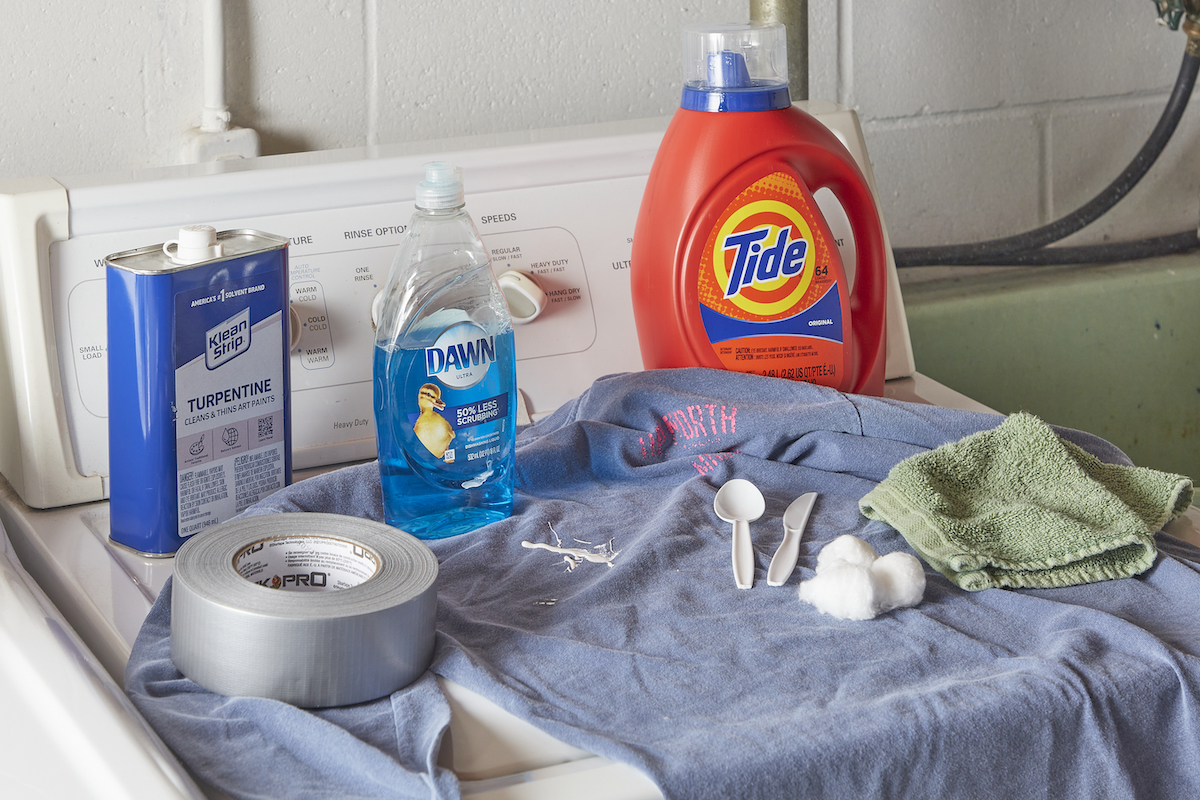

We may earn revenue from the products available on this page and participate in affiliate programs. Learn More ›
It’s bound to happen. You’re just going to do a bit of touch-up or you accidentally brush up against a still-wet project. The next thing you know, there’s paint on your clothes. Don’t panic—the stain will probably come out.
First, determine whether the offending paint is latex, acrylic, or oil. To test, apply rubbing alcohol to a clean white rag and dab the stain: If paint transfers to the rag, it’s latex. If not, you’ll need help from a paint removal agent.
While delicate fabrics like silk don’t always fare well in the paint removal process, denim and other cottons often turn out as good as new. So try these treatments, and you might be able to wear that paint-besmirched shirt on your next night out of the house!
Removing Latex Paint from Clothes
If there’s a latex-based paint stain on your clothes, no worries! Chances are you already have the materials you need to get the stain out.
SUPPLIES
Cotton rags or paper towels
Butter knife or spoon
Dish soap or liquid laundry detergent
Rubbing alcohol
Toothbrush (optional)
Step 1: If the paint is still wet, remove as much of it as you can from the garment.
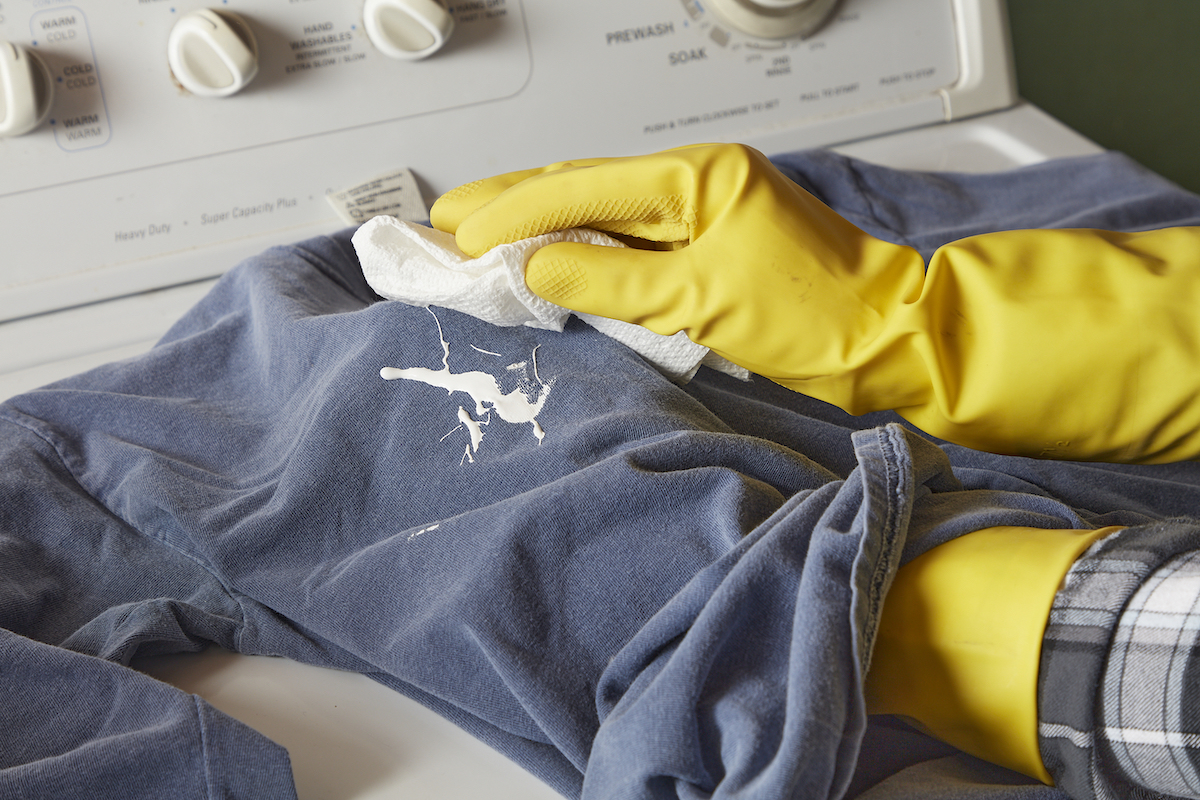
If the paint is still wet, it’s important to act fast. Place a pad of clean rags or paper towels directly under the paint to keep it from transferring to another area of the garment. Then, scoop off wet paint with a spoon or butter knife, rinse under warm running water, and blot carefully with a clean, dry rag or paper towels. (If you can’t peel your clothes off just then, get rid of the excess as best as you can and wet the area with water until you can take off the garment.) Turn inside out and run warm water through from the back.
Step 2: Apply liquid dish detergent to the paint stain.
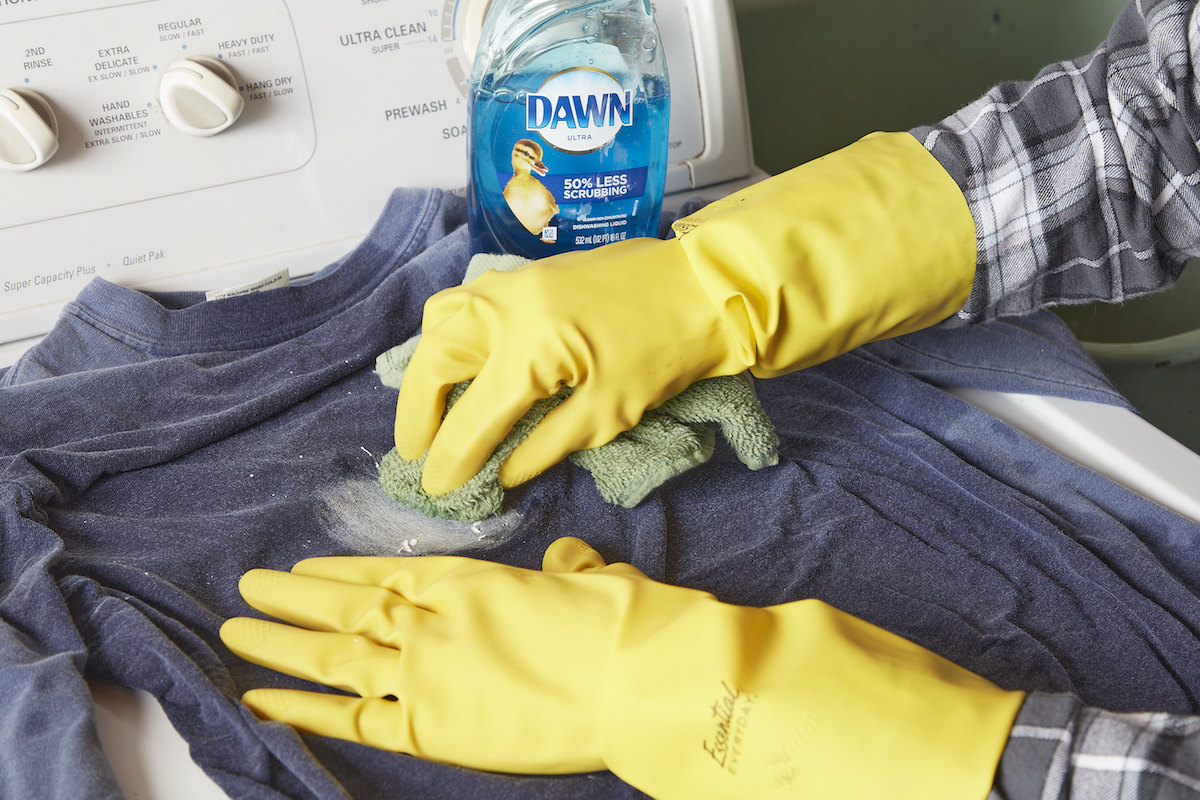
Liquid dish detergent works well on paint-stained clothes, as long as the garment is color-safe. (Test an inconspicuous area like an inseam by rubbing in detergent and rinsing it. If the item isn’t color safe, use liquid laundry detergent.) Apply detergent directly to the stain and work up a lather with a clean sponge or cloth. Continue hand-washing the area with clean sections of cloth, and move the padding underneath occasionally as well.
Blot to check your progress, and repeat as needed. Then launder as usual. If the paint had dried and remains steadfast despite your efforts with detergent, allow the fabric to dry and proceed to the next step.
Step 3: Remove the remaining paint residue.
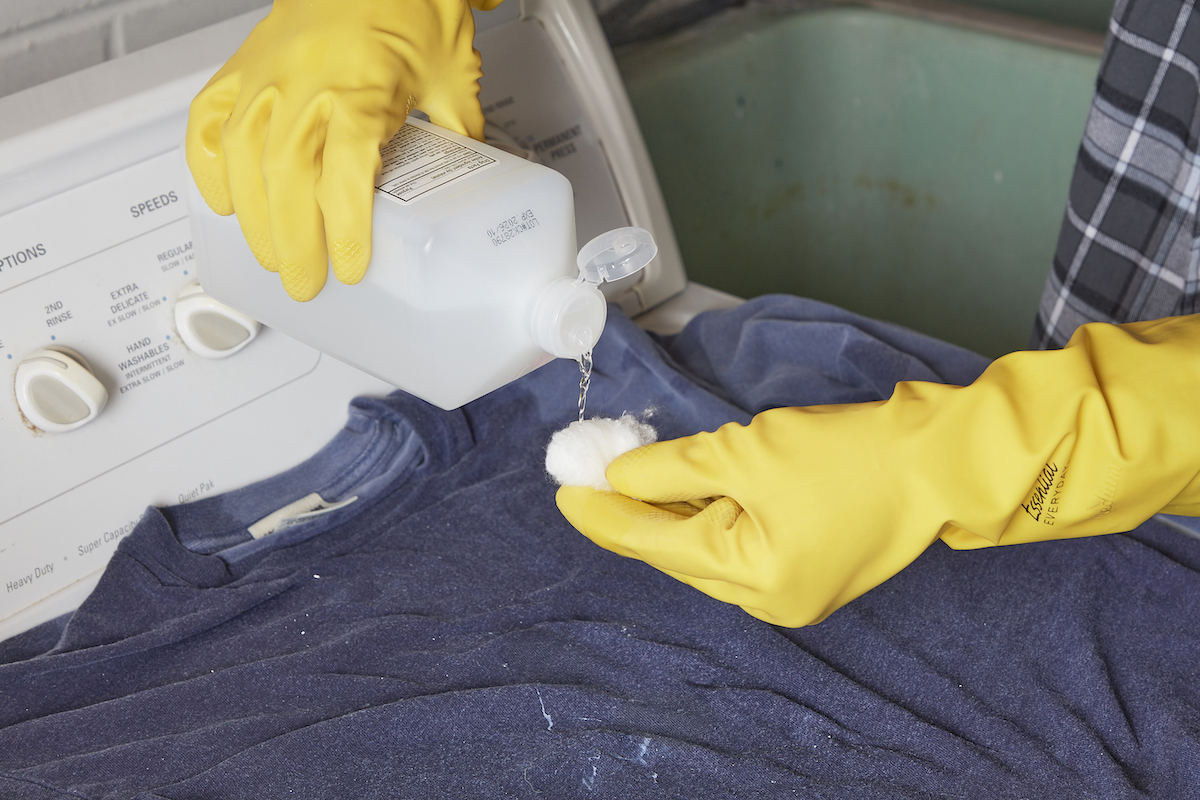
Again, gently scrape off the now-dried excess with a butter knife. Or firmly press a piece of packing or duct tape onto the paint, then lift it off, repeating until no more comes off.
If the paint residue remains on color-fast fabric (see Step 2), you have one more option: Apply a small amount of rubbing or denatured alcohol (or as a last resort, nail polish remover) to the stain, and work at it with an old toothbrush. Blot with water and repeat as required, then launder as usual.
Removing Oil and Acrylic Paint From Clothes
If you’re removing oil or acrylic paint from a garment, you’ll need to use paint thinner or turpentine to get the job done. For this reason, be sure to work in a well-ventilated area.
SUPPLIES
Cotton rags or paper towels
Butter knife or spoon
Paint thinner or turpentine
Cotton balls (optional)
Dish soap or liquid laundry detergent
Rubbing alcohol
Toothbrush (optional)
Step 1: Scrape away as much paint as you can.
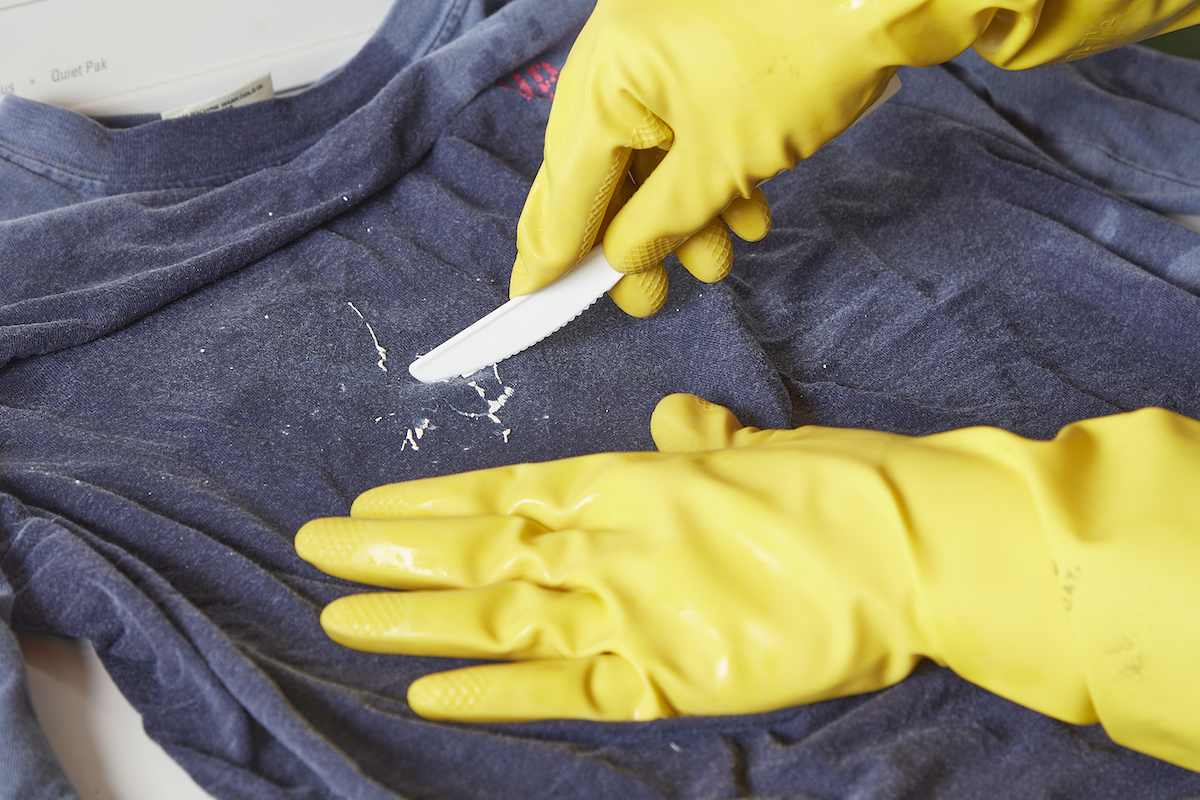
Scoop off excess wet paint with a spoon or butter knife. If the paint has dried, use the butter knife to scrape off as much as you can. Turn the garment inside out and place a pad of cloth or paper towels under the stained area to aid in blotting.
Step 2: Dab the paint stain with a paint removal agent.
Pour a paint removal agent such as a paint thinner or turpentine into a small plastic container—ideally something disposable, like a yogurt tub, for easy cleanup. Soak cotton balls or a clean rag in the paint remover and dab at the stain. Switch out for fresh cotton balls or an unused section of the rag as they pick up paint, moving the pad underneath occasionally, too, for a clean blotting surface.
For a truly stubborn stain, pour a bit of removal agent directly on it and scrub gently with a toothbrush, front and back, to free the fibers of paint.
Step 3: Blot away the agent.
By now, the garment should be practically stain-free. Place a fresh dry cloth or paper towel pad behind the area and blot to absorb the removal agent.
Step 4: Launder the garment.
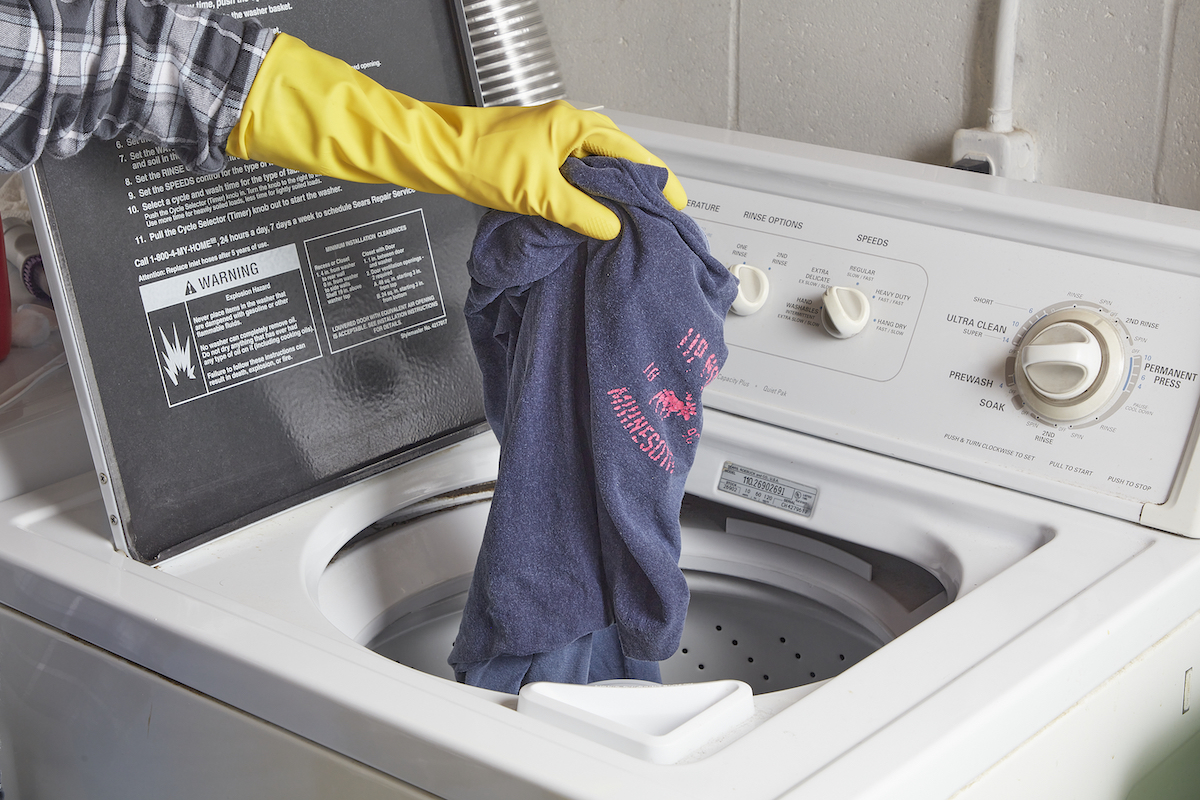
Heeding the label’s recommended laundry detergent, apply a bit of detergent directly to the area and lightly rub it in as a final spot treatment. Wash and dry as usual.
